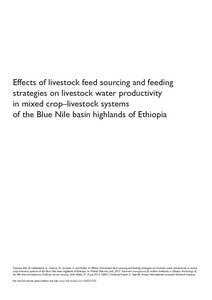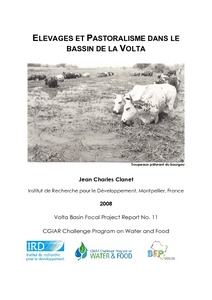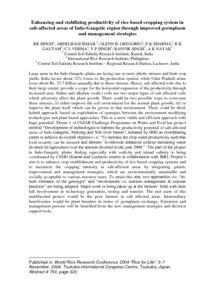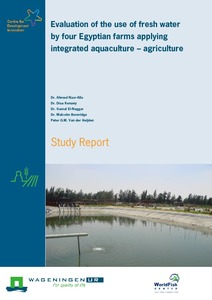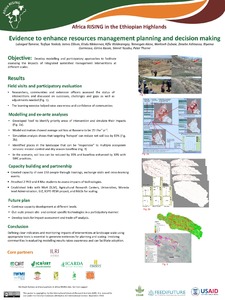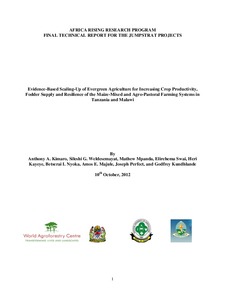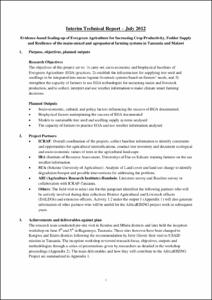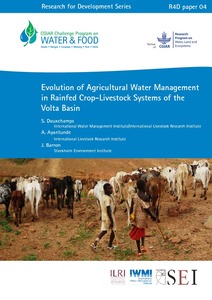Effects of livestock feed sourcing and feeding strategies on livestock water productivity in mixed crop–livestock systems of the Blue Nile basin highlands of Ethiopia
Inefficient management and use of water is unanimously the most single constraint of agricultural production of Ethiopia. The study was conducted to assess the effect of livestock feed sourcing and feeding strategies on livestock water productivity (LWP) in mixed crop–livestock production systems of the Blue Nile Basin in Ethiopian Highlands. Three districts representing diverse agricultural farming systems were considered. Each district further stratified to different farming systems. Multi-stage stratified random sampling technique was employed to select farm households.
El ambiente socio-economico de la produccion de raices y tuberculos: implicaciones para el diagnostico
Using the farm as unit of analysis, diagnosis processes aimed at improving production systems are reviewed. Within a country, diagnosis should be conducted at different hierarchical levels: local (interaction between the production system and the input distribution sector, the marketing sector, possible forms of processing, and consumption characteristics); regional (appropriate selection of target site); and national (development trends and governmental policies at the macroeconomic and sectorial levels).
Enhancing farming system water productivity through alternative land use and improved water management of rainfed agriculture in Vertisol areas
Waterlogged Vertisols are amongst the high potential soils where management interventions could result in positive impacts. This study utilized soil, climate and crop and livestock productivity data and models to demonstrate intensification strategies which increase crop–livestock system productivity and to understand the effects of alternative land use and water management options on water productivity in the Vertisols areas.
Enhancing rainwater and nutrient use efficiency for improved crop productivity, farm income and rural livelihood in the Volta Basin
Enhancing and stabilizing productivity of rice-based cropping system in salt-affected areas of Indo-Gangetic region through improved germplasm and management strategies
Evaluation of the use of fresh water by four Egyptian farms applying integrated aquaculture – agriculture
Evidence to enhance resources management planning and decision making
Evidence-based scaling-up of evergreen agriculture for increasing crop productivity, fodder supply and resilience of the maize-mixed and agro-pastoral farming systems in Tanzania and Malawi
Evidence-based Scaling-up of Evergreen Agriculture for Increasing Crop Productivity, Fodder Supply and Resilience of the maize-mixed and agropastoral farming systems in Tanzania and Malawi Interim technical report July 2012
Evolution of agricultural water management in rainfed crop-livestock systems of the Volta Basin
This study of the evolution of AWM in the Volta Basin yielded key recommendations for research-for-development interventions and new concepts for research on water management. When promoting AWM strategies, projects should carefully study the available information on factors triggering adoption,
and play on these to ensure sustainable uptake of the technology. Local capacities and agendas should be better accounted for when promoting AWM strategies or low-cost irrigation technologies. Participatory


